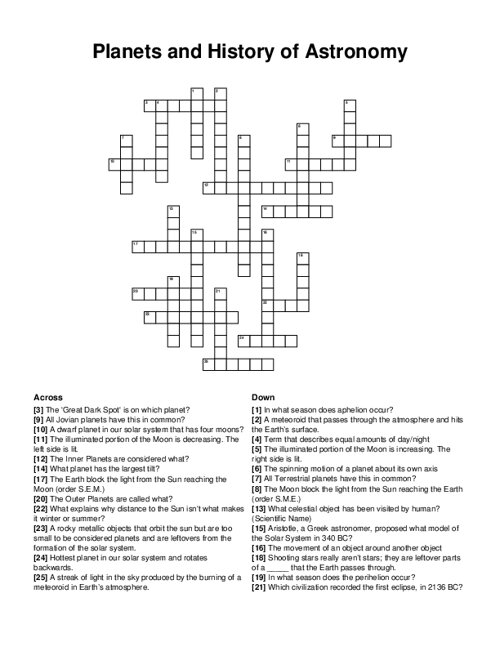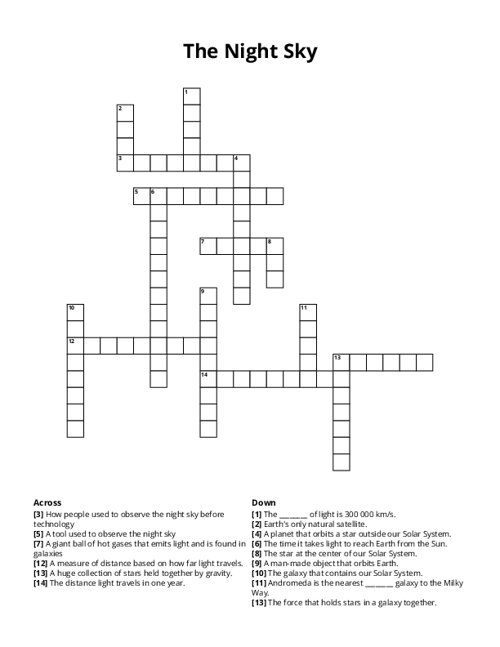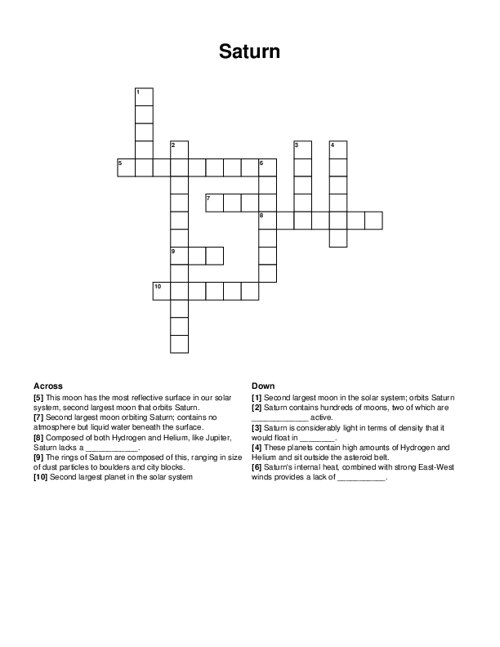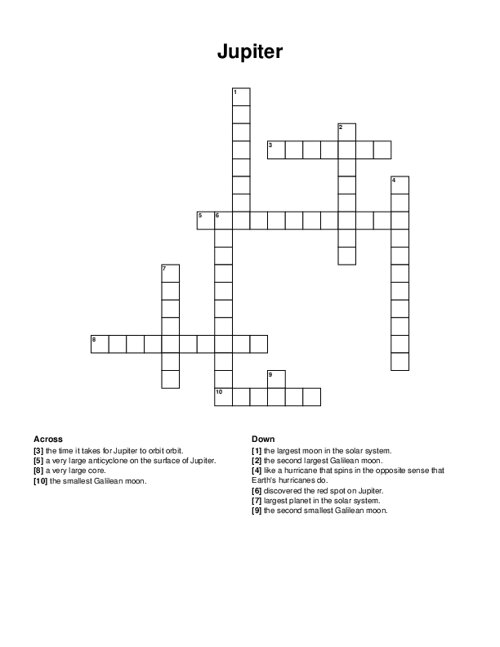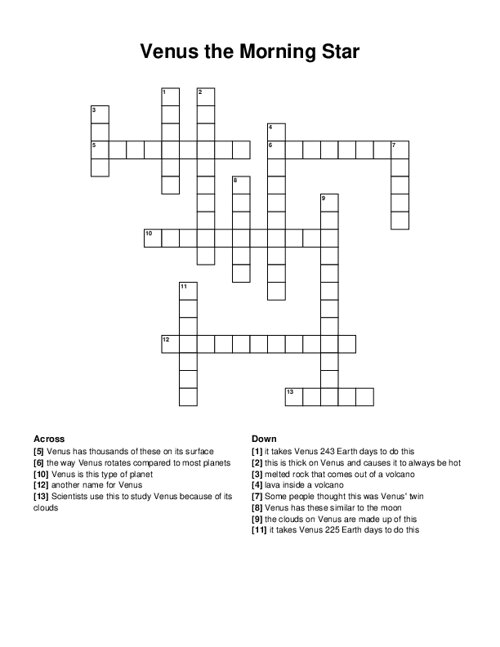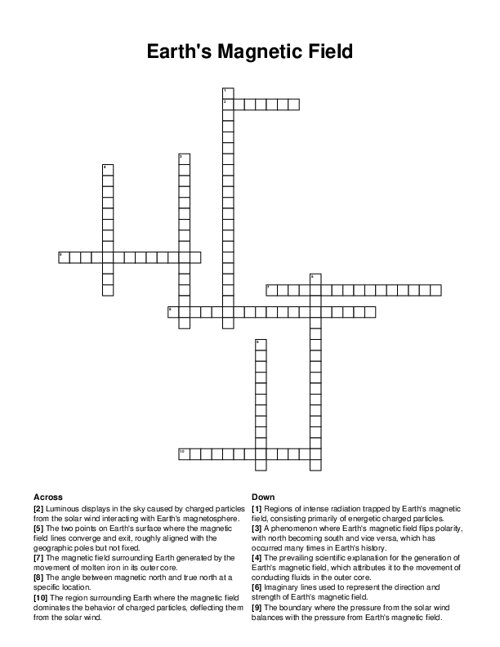Planets and History of Astronomy Crossword Puzzle
Download and print this Planets and History of Astronomy crossword puzzle.
Related puzzles:
QUESTIONS LIST:
- solar eclipse: the moon block the light from the sun reaching the earth (order s.m.e.)
- lunar eclipse: the earth block the light from the sun reaching the moon (order s.e.m.)
- waning: the illuminated portion of the moon is decreasing. the left side is lit.
- waxing: the illuminated portion of the moon is increasing. the right side is lit.
- pluto: a dwarf planet in our solar system that has four moons?
- neptune: the 'great dark spot' is on which planet?
- uranus: what planet has the largest tilt?
- luna: what celestial object has been visited by human? (scientific name)
- venus: hottest planet in our solar system and rotates backwards.
- rings: all jovian planets have this in common?
- terrestrial: the inner planets are considered what?
- jovian: the outer planets are called what?
- solid: all terrestrial planets have this in common?
- chinese: which civilization recorded the first eclipse, in 2136 bc?
- comet: shooting stars really aren’t stars; they are leftover parts of a _ that the earth passes through.
- meteorite: a meteoroid that passes through the atmosphere and hits the earth’s surface.
- meteor: a streak of light in the sky produced by the burning of a meteoroid in earth’s atmosphere.
- asteroid: a rocky metallic objects that orbit the sun but are too small to be considered planets and are leftovers from the formation of the solar system.
- geocentric: aristotle, a greek astronomer, proposed what model of the solar system in 340 bc?
- equinox: term that describes equal amounts of day/night
- summer: in what season does aphelion occur?
- winter: in what season does the perihelion occur?
- tilt: what explains why distance to the sun isn't what makes it winter or summer?
- revolution: the movement of an object around another object
- rotation: the spinning motion of a planet about its own axis
